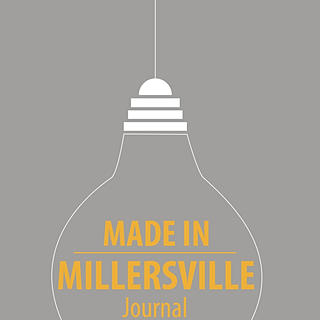TACKLING WRITER'S BLOCK: INSPIRATION
- MiM Journal
- Apr 17, 2024
- 7 min read
Tackling Writer's Block Part 2: Inspiration (or Lack Thereof)
By Amelia Cusanno
No Thoughts, Head Empty
Back in Part 1 (click here to check it out if you haven’t yet!), we discussed the issue of writer’s block, and how to improve your writing skills to combat it. Just like that section, the majority of my advice is centered around creative writing, but can be applied to other writing projects as well. And once again, all of this is based on my personal observations and experiences, so please share your thoughts in the comments!
I feel like this is the second most common issue writers run into. You’ve written again and again and again, ultimately running the well dry. You feel drained, with no idea of where to take the story, how to better develop your characters, and what concepts to expand upon. You haven’t lost your motivation, you’re still fully dedicated to what you’re working on, but you don’t know what to do.
This is where we circle back to reflection and immersion. Review the questions from The Curse of Ambition, and then consider these:
Do you already consume a lot of diverse media similar to what you’re writing?
Did an author do something that you really liked and hope to emulate? What plot points, themes, concepts or stylistic elements would you want to implement into your own writing?
What did an author do that you absolutely hated? Why? What would you have done differently?
After consuming more media (not just writing, but films, TV shows, video games, and other forms of entertainment or information) in your chosen genre, what patterns do you notice? How do you feel about them?
Now it’s time for, unironically, my favorite part: RESEARCH! I don’t care if you’re not working on a research paper, I don’t care if it doesn’t need in-text citations. Trust me, research will be your best friend. Learn more about your genre. Watch video essays on the topic, read reviews and articles analyzing different elements of your favorite media. Remember though: You can’t please everyone, so seriously consider what is strictly opinion versus what is useful insight and analysis.
Gaining a better understanding of what cliches and archetypes are versatile and fun versus which ones perpetuate harmful stereotypes or have negative connotations is vital, both for helping you obtain new inspiration and for your development as a writer. For example, I love horror, both as a creator and a consumer. I’ve watched countless horror movies, listened to analogue horror podcasts, and read as many gothic novels as I could get my hands on. It’s an intensely thrilling, complex, and fascinating genre that frequently crosses over with mystery, fantasy, nonfiction, and romance to breed new beasts. It explores so many aspects of humanity, and reveals collective fears at certain points in history.
It’s also rampantly racist, misogynistic, anti-semitic, generally xenophobic, homophobic— You get the idea. For example, Bram Stoker depicts Dracula in his novel as a Jewish caricature with a large hooked nose, dark hair, and an obsession with moving west and spreading vampirism across the United Kingdom. This directly reflects fears from the late Victorian era of Jewish and Romani people traveling west into England, and “taking over” a predominantly white, Christian society.
I won’t go into all the… less than stellar elements frequently found in horror (although I’d love to), but I bring this up to prove my point: Enjoying something while critically consuming it helps you weed out sentiments you don’t want to depict in your own writing, and opens new doors that haven’t been previously examined.
“Oh!” I hear you cry. “But this is how it’s always done! It wouldn’t be accurate or believable if I didn’t do it exactly the same! I can’t just ignore pre-established lore and commonly accepted portrayals!”
You can’t? Why not? Taking a concept and subverting or reinventing it may help break through that wall you’re stuck at, with the added benefit of shifting pop culture tropes away from their negative connotations. So mess around with your monsters and villains. Make your characters complex and unique. Understand their origins, implications, and what that means in your own work. Immersing yourself in the genre will help you pick apart and better understand these tropes, along with how other writers reimagine them. Then force yourself outside your preferred genres and immerse yourself in something new. High and low budget, campy and serious, indie and mainstream. Take it all in, savoring it like a rich meal. Pay attention to the spices and nuances. Drink up knowledge and perspectives and fulfillment.
Think Outside that Pesky Box
When research and emulating similar works isn’t enough, you need to break things down to their core and throw them in a new location. Visual, auditory, and personal references are incredibly helpful when you find yourself unsure of what to do. If you’re super into art like me, then sketching your characters, locations, or relevant motifs can provide a clearer picture if you’re struggling to turn vague concepts into words. An easier, more common method is creating a mood board or collage based on what you’re writing (Pinterest and Canva are popular and free options for this!). If you can’t put your character’s personality and goals into words yet, or if the general theme is escaping you, visual references can narrow your scope or at least give you something to mull over. What do you want your writing to represent? What motifs and symbols are currently present or will become present?
Auditory references are a favorite of mine. Whenever I’m writing a poem, I listen to a song on repeat with a similar theme, sound, or rhythm to what I’m aiming for. It keeps me focused and consistent. Playlists are another popular option for writers— whether the songs originated from the region your story is set in, or are from the same time period, or they simply reflect the thoughts and feelings of your characters —music sets the mood, adds fullness to your characters they may not have had before, and immerses you in your setting.
Similarly, I love listening to ambient soundtracks through YouTube when writing a short story or novel. One of my go-to channels when writing horror or fantasy is Miracle Forest ASMR, due to her hyperspecific (and often eerie) themes. I’ll play a video of “old pirate ship” or “haunted dining room” sounds in the background to set the scene and include clearer descriptions. Sometimes the videos themselves spark a new story idea!
Personal references are drawn from, well, personal experiences. Memories, family history, culture, religion, trauma, fears, dreams, interests. One of my current works-in-progress is based on a nightmare I had while staying in an old farmhouse. Another is inspired by the “New England Vampire Panic” and other elements of historic vampire lore. One of my completed stories was based on an interview I conducted with a family member, combined with my own experiences with derealization and grief. Yet another is simply drawn from my severe arachnophobia and OCD. I create characters built from what I know, personifying parts of myself and the world around me into something to be loved or feared. “Write what you know” is a popular piece of writing advice, and it’s something I’ve stuck with over the years, both consciously and subconsciously.
When I’m writing a novel or play and suddenly come to a screeching halt because I simply don’t know what comes next or how to develop one of my characters, I place the characters in a whole new setting. I’ll look up character study prompts online, choose one, and no matter how difficult it is, I’ll power through until my character starts to truly come alive. Here are some ideas to start:
What is your character’s family life like? What was their role in the house? How did this impact their personality or world views?
What is one major negative experience your character has had? What is one major positive experience?
What values does your character have? What do they prioritize in the world?
What are their greatest fears? Describe how they react when faced with them.
What are 10 things readers will never know about your character?
Pick a few characters from your piece, and have them describe another character, like they’re being interviewed on a talk show.
Similarly, what is the first impression people get from your character in their world?
How do you want your character to start in the story, and how do you want them to be at the end?
Will their personality and values remain stagnant?
Will a previously good attribute gradually be taken to its negative extreme (i.e. A character starts off determined and passionate about a goal or interest, but becomes totally obsessed by the end)?
Do they start off cynical and aloof but grow to care deeply for others (or vice versa)?
If you’re working on a longer fiction piece, character building exercises are invaluable. They help determine a character’s value, connections, motivations, and ways of handling problems. One of my go-to prompts is:
“Write a short prose piece describing a character’s small quirks.”
Do they stutter when angry? Does their nose scrunch up when they laugh? How do they handle minor conflicts? Are they intense, animated, and expressive in their movements? Or are they more subtle, calculated, and observant? What do they find meditative and relaxing? Do they have any scars or unique physical traits? How do they feel about those traits? Is there a quiet sense of pride or simple neutrality?”
Writing about a character’s quirks provides a deeply intimate look into their everyday lives, ways of navigating the world, and self-esteem. Not every detail needs to be included in your final draft, it just provides you with extra material, like a fun little secret.
My final piece of advice for dealing with a lack of inspiration is probably one you’ve heard before and you’ll continue to hear for years to come: Establish a writing routine. Don’t just write when you feel inspired. Sure, inspiration makes writing easier sometimes, but it’ll take longer to actually complete something, and if you’re being paid to write, you can’t afford to wait until inspiration hits. If you’re part of a club or workshop, maintaining a routine is easier, but if that’s not an option, determine a schedule that works best for you. Maybe Tuesdays and Thursdays are your writing days. Maybe you dedicate an hour or two after dinner to writing. Maybe you aim to write 500 words minimum per day. Maybe you can only manage to write 500 words minimum per week. I’ll go more in-depth about writing routines and processes in a future blog post, but structure your writing within your current schedule and energy levels, even if it’s a little bit every week.
Now onto Part 3: Burnout and Boredom!







Slot machines are an interesting way to spend your free time, and I started using this site to play slot machines - https://slotscity.ua/casino-app . Because it seemed to me that this site has the best gaming conditions to play slot machines. I was not mistaken, because as it turned out, this is the best site where you can legally gamble!